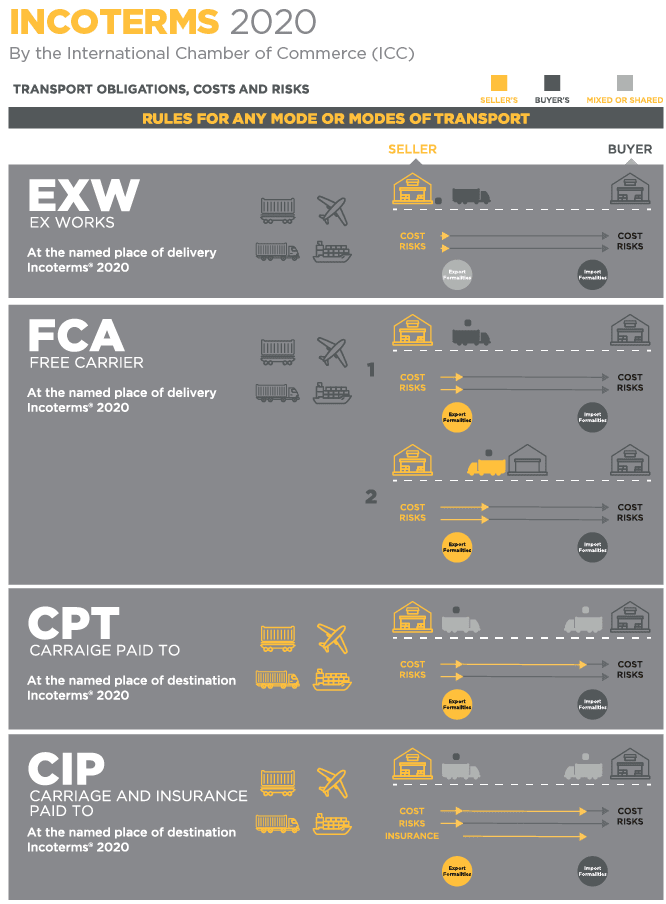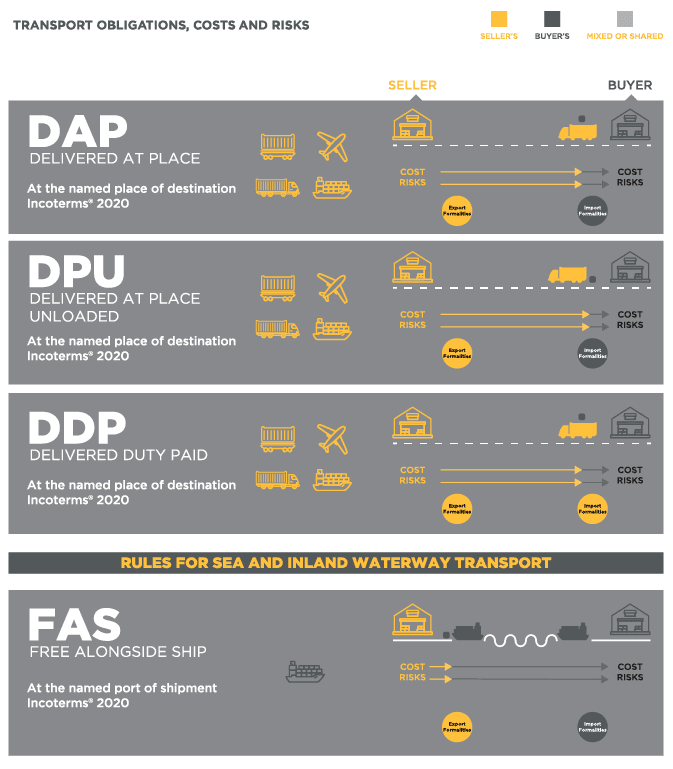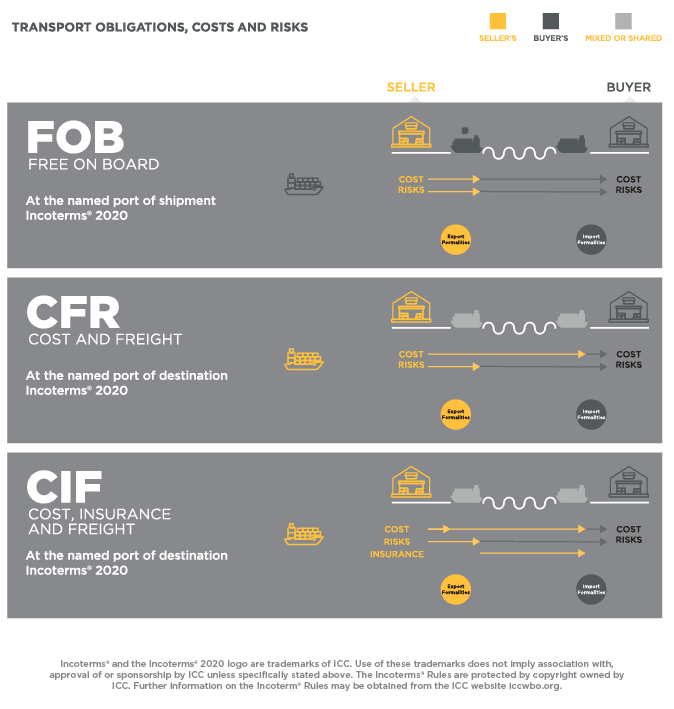
The Incoterms define the important responsibilities of buyers and sellers for the delivery of goods under sales contracts. They are the authoritative rules for determining how costs and risks are allocated to the parties. Incoterms 2020 rules are regularly incorporated into contracts for the sale of goods worldwide and have become part of the daily language of trade.
The 9th version of the Incoterms 2020 will come into effect on the 1st of January 2020 and contains the rules for use of the 11 Incoterms® trade terms. It takes into account the latest developments in commercial practice and updates the rules to make them more accessible and easier to use.
What are the differences between Incoterms 2010 and Incoterms 2020?
With a few significant revisions and adjustments, Incoterms 2020’s main explanations have not changed. The primary modification involves replacing DAT with a new DPU term and additional Incoterms adjustments. It’s crucial that everyone involved in international trade is aware of these modifications and how they can impact your supply chain.
In the last version of Incoterms 2010, there were 11 Incoterm rules. They were divided into two classes:
- Rules For Any Mode Of Transport
EXW (EX WORKS)
FCA (FREE CARRIER)
CPT (CARRIAGE PAID TO)
CIP (CARRIAGE AND INSURANCE PAID TO)
DAT (DELIVERED AT TERMINAL)
DAP (DELIVERED AT PLACE)
DDP (DELIVERED DUTY PAID) - Rules For Sea And Inland Waterway Transport
FAS (FREE ALONGSIDE SHIP)
FOB (FREE ON BOARD)
CFR (COST AND FREIGHT)
CIF (COST INSURANCE AND FREIGHT)
What are the most important changes on Incoterms 2020?
The most obvious change to the 2010 Incoterms is renaming the term Delivered at Terminal (DAT) to Delivered at Place Unloaded (DPU). The ICC renamed this term because it became apparent that sometimes the buyer and/or seller want the delivery of goods to occur somewhere other than a terminal.
This term is often used for consolidated containers with multiple consignees, and it is the only term that tasks the seller with unloading the goods.
- Rules For Any Mode Of Transport (2020)
EXW (EX-WORKS)
FCA (FREE CARRIER)
CPT (CARRIAGE PAID TO)
CIP (CARRIAGE AND INSURANCE PAID TO)
DAP (DELIVERED AT PLACE)
DPU (DELIVERED AT PLACE UNLOADED)
DDP (DELIVERED DUTY PAID) - Rules For Sea And Inland Waterway Transport (2020)
FAS (FREE ALONGSIDE SHIP)
FOB (FREE ON BOARD)
CFR (COST AND FREIGHT)
CIF (COST INSURANCE AND FREIGHT)
Overview of Incoterms 2020 for 11 Terms (7 of which are applicable to any mode of transportation).



Other significant changes of Incoterms 2020
Apart from this, the other differences between the 8th revision (2010 rules) and 9th revision (2020 rules) are that:
- The Incoterms® FCA (Free Carrier) now provides the additional option to make an on-board notation on the Bill of Lading prior loading of the goods on a vessel.
- The costs now appear centralized in A9/B9 of each Incoterms® rule.
- In Incoterms 2020 rules, the seller is now responsible for purchasing a higher level of insurance coverage—at least 110% of the value of the goods as detailed in Clause A of the Institute Cargo Clauses—under the revised term CIP. The insurance requirement hasn’t changed for CIF
- CIF requires at least an insurance with the minimum cover of the Institute Cargo Clause (C) (Number of listed risks, subject to itemized exclusions).
- The Incoterms® rules Free Carrier (FCA), Delivered at Place (DAP), Delivered at Place Unloaded (DPU) and Delivered Duty Paid (DDP) now take into account that the goods may be carried without any third-party carrier being engaged, namely by using its own means of transportation.
- The rule Delivered at Terminal (DAT) has been changed to Delivered at Place Unloaded (DPU) to clarify that the place of destination could be any place and not only a “terminal”.
- The Incoterms® 2020 now explicitly shifts the responsibility of security-related requirements and ancillary costs to the seller.
Do you have questions about INCOTERMS 2020 and the terminology associated with it? You can always contact ILS or visit our website. At our shipping company, we are fortunate enough to work with some of the most qualified professionals in the industry. Feel free to give us a call at 1-800-ILS-9712 to learn more.
Are you ready for INCOTERMS 2020?


